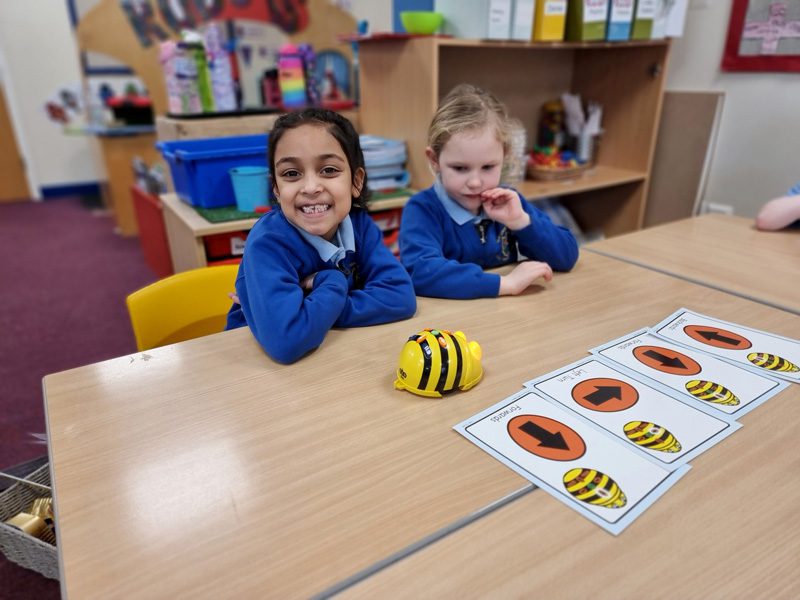Computing
Intent
Our aim is for all pupils to be knowledgeable, expressive and inspired:
In computing this means children learn through a well-designed sequential curriculum. The different aspects of computing, such as programming, creating digital content and online safety, are taught by a specialist teacher to support children to acquire the knowledge and skills they will need to be successful in a digital world.
Our Four Curriculum Drivers underpin our approach to learning across all subjects at NLAS.




Our intent is that our children learn: programming skills, how to be safe in the online world, how to create digital media in creative and functional ways, how computer systems are connected and how databases are used to store information. Children develop the knowledge and skills to apply their programming skills across different platforms and be confident, productive and safe when using digital resources.
Through the teaching of subject specific technical vocabulary, children develop their ability to explain computer terms such as algorithm, database, debugging and process. Children will be able to tell someone if they are feel unsafe whilst using digital technology. They will be able to question information they read, see or hear online.
Linking the content of the curriculum to our 10 core values and our All Saints’ Way is essential in the teaching of computing: empowering children with the confidence to have a go, to learn from mistakes and to keep trying and improving.
Wherever possible, diverse role models are used to encourage all children to see themselves as being successful programmers and users of technology. The focus on having a growth mind-set is essential in the teaching of programming. In order to succeed in programming tasks, the children must show perseverance in order to debug their mistakes.
Children explore the purposes of computing within a context as well as its meaning within their own life and future e.g. using computing lessons to support art, music and science. Children have opportunities to use computing across the curriculum for real life purposes e.g. creating a climate change animation to raise awareness as part of the school environment focus.
All children, including those who have SEND or are disadvantaged are supported to fully access our curriculum. This may include additional adult support or the use of visuals, structured sentence stems, resources, etc. which acts as a scaffold for children’s learning.
Implementation
The Computing scheme of work is based on the Teach Computing curriculum created by the National Centre for Computing Education. The scheme fits the needs of our children across all key stages. It lays out the sequential steps to be taught so that new knowledge and skills build on what has been taught before and pupils can work towards clearly defined high quality outcomes.
Children from Y1 to Y6 have a weekly computing lesson taught by class teachers. Pupils in EYFS are given opportunities to develop basic computing skills through their continuous provision.
The majority of the curriculum is taught through the use of Chromebooks but iPads are also used to support the teaching of specific units. Chromebooks and iPads are regularly updated to ensure children have access to up to date technology. Where equipment is not available we use the local cluster or feeder high schools to provide extended opportunities to develop deeper projects such as using Mircobits.
Computing is taught in units, enabling children to develop and build upon their knowledge and understanding of each area of computing.
Each strand of computing (programming, creating media, data and information and computer systems) is covered and revisited so that pupils retain and build upon prior learning.
The Computing lead supports teachers and monitors standards by talking to children, monitoring digital portfolios and completing walkthroughs and drop ins of lessons. Governors are also involved in these processes.
Impact
Children at NLAS enjoy computer lessons and have opportunities to succeed in the wide variety of digital tasks. They build practical skills to enable them to successfully access technology and prepare them for secondary school and beyond. They work collaboratively with their peers to build teamwork skills. Children understand how to keep themselves safe and how to seek help and support if they experience dangers online

New Longton
Preston
Lancashire
PR4 4XA




